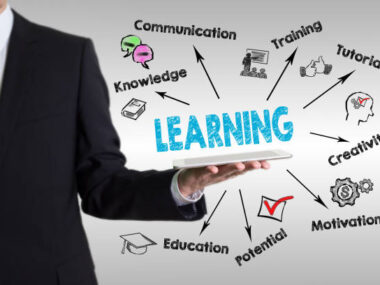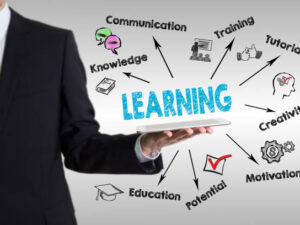An early childhood education degree is not merely an academic achievement; it’s a passport to a world of possibilities in shaping young minds during their most impressionable years. This post will navigate the rich spectrum of what it means to commit to a career path paved with growth, learning, and the reward of influencing the next generation positively. With studies emphasizing cognitive, social, and emotional development, it’s clear why obtaining an early childhood education degree can be a transformative decision.
What Is An Early Childhood Education Degree?
An early childhood education degree represents a specialized commitment to the developmental milestones of children from their infancy through their early school years. This specialized field intertwines understanding the nuanced psychology of young learners with the art of teaching.
The curriculum meticulously prepares educators to craft engaging, diverse learning experiences while equipping them with the practical skills necessary for classroom dynamism and curriculum advancement. Holders often find their place shaping young minds in environments from modern classrooms to innovative playschools.
– Early childhood educators must master a wide swirl of knowledge and competency areas:
– Developmental psychology to navigate through a child’s social and emotional stages.
– Strategies for fostering inclusive, safe, and enriched learning atmospheres.
– Curriculum design tactics that align with early learning frameworks and standards.
– Proactive engagement with families, ensuring a collaborative approach to a child’s development.
The comprehensive approach of these programs unequivocally demonstrates the value and significance of structured learning during the foundational years of education.
Qualifications Required for a Flourishing Future in Early Education
Entering the field of early childhood education demands certain preparatory steps, shaping potential educators into informed, capable, and responsible individuals.
Firstly, a high school diploma or equivalent is key to unlocking the door to higher learning. Succeeding in a relevant program also involves demonstrating communicative prowess and a GPA reflective of dedication and academic readiness. Notably, the sensitivity of the job necessitates thorough vetting through background checks, while essential personal attributes like patience and resourcefulness are highly regarded.
– Items to check off on your academic and personal qualification list might include:
– Confirmation of high school completion or its equivalent.
– Achieving (or surpassing) the GPA baseline for the program in question.
– Clearing necessary background checks to ensure a safe environment for children.
– Assessment of English proficiency, if not a first language, through standardized exams.
These qualifiers are crucial in establishing a firm starting point for those poised to become influential figures in the domain of early childhood education.
Embracing Flexibility with Online Education Degrees
Can the pathway to earning a degree in early childhood education adjust to your busy life? Absolutely. Technology and academic innovation open the doorway to online degree programs, offering the required flexibility that many students need.
The distinction and robustness of online degrees are comparable to traditional campus experiences, with an emphasis on key subjects like child development, class management, and educational strategies. The virtual classroom environment provides space for real-time discussions, playback of lectures, and a plethora of resources right at your fingertips.
Advantages of pursuing your degree online:
- Learn from anywhere in the world, on a schedule that works for you.
- Engage with coursework and peers through intuitive online platforms.
- Gain qualifications indistinguishable from those achieved via on-campus routes.
- Choose from a diverse array of accredited institutions delivering reputable programs.
For dedicated students, geographical and temporal boundaries cease to exist in the pursuit of their early childhood education degree online.
Exploring Career Horizons with a Degree in Early Childhood Education
With this degree at your back, the futurescape of possible career trajectories is both vast and inviting. Envision making a daily impact as a preschool or kindergarten teacher, or steering the course of an entire childcare center as its director. Inclusivity takes center stage for the special education teacher, while the family support specialist wields expertise to strengthen community ties.
– A glimpse into the professional avenues open to degree holders:
– Curriculum designer crafting tailored, engaging educational experiences for preschools.
– Early intervention specialist providing crucial support during critical developmental windows.
– Advocate or policy maker influencing legislation and best practices in early childhood education.
This degree serves as a stepping stone for innumerable rewarding and impactful positions, each playing a pivotal role in the educational fabric of society.
Time Investment: Degree Completion Timeline
How long is the journey to acquire an early childhood education degree? An associate degree path usually unfolds over two years, while a bachelor’s track may span approximately four years of study. Advanced pursuits like a master’s degree will necessitate additional education, typically one to two years beyond the bachelor’s framework.
- Timeframes to keep in mind when planning your academic progression:
- An associate degree typically requires around two years of full-time enrollment.
- Bachelor’s degrees are usually structured as four-year programs.
- Part-time options provide extended timelines to accommodate work-life balance.
- Completion may expand with field experiences or choice of accelerated programs.
The very nature of academic pursuit in early childhood education is its flexibility, embracing students’ unique circumstances and providing a variety of paths to reach their professional pinnacle.
Free Early Childhood Education Degree Online
Continuing your educational journey has never been more accessible, thanks to the plethora of free early childhood education degrees available online. By leveraging such resources, aspiring educators and childcare professionals can initiate or advance their careers without the hurdle of financial constraints.
These programs typically cover a wide array of topics, from developmental psychology to classroom management, ensuring that participants develop a well-rounded understanding of young learners’ needs. With the convenience of self-paced study and the absence of tuition fees, there is a tremendous opportunity for interested individuals to gain invaluable knowledge and certification in this rewarding field.
The rise of digital learning platforms has democratized education, enabling those who may have once considered a degree in early childhood education beyond their reach to now take that pivotal step towards shaping the future of our children and communities with confidence and competence.
Nurturing Success with Early Childhood Education Degrees
The influence of an early childhood educator echoes across a lifetime. An early childhood education degree is far more than an accumulation of credits and certifications—it’s an emblem of commitment to cultivating the potential in every young learner.
With informed dedication, a robust curriculum, and an expanding landscape of opportunistic careers, the degree serves as a beacon for those who wish to make a lasting, positive impact on the development of children and, consequently, on the future of our society. Through care, creativity, and the continuous pursuit of knowledge, the scope of early childhood education continues to broaden—ushering in a new era of teaching, learning, and growing together.










